SUMMARY
This is AI generated summarization, which may have errors. For context, always refer to the full article.
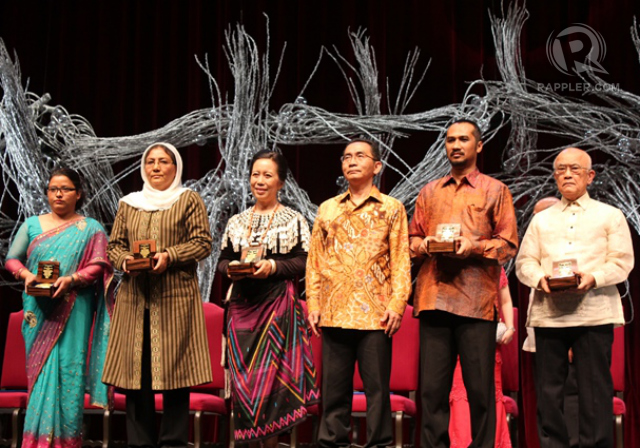
MANILA, Philippines – The Ramon Magsaysay Awards for 2013 were given out on Saturday, August 31, to 3 individual-trailblazers and two groups fighting against pervasive social ills in the region.
The award — regarded as the Nobel Prize of Asia — recognized a Filipino healthcare-for-all advocate, a Burmese development worker, a female Afghan governor, a Nepalese anti-human trafficking group, and an Indonesian anti-corruption commission.
READ: Drawing inspiration from the 2013 RM Awardees
Chief Justice Maria Lourdes Sereno, who was the guest of honor during the awarding ceremony, was moved by the life narratives of the award recipients.
“Their stories should not only just continue to amaze us, [but] we should learn from them. We should ask ourselves why we have not deepened our hearts (sic) that yearn for revolutionary transformation,” said Sereno.
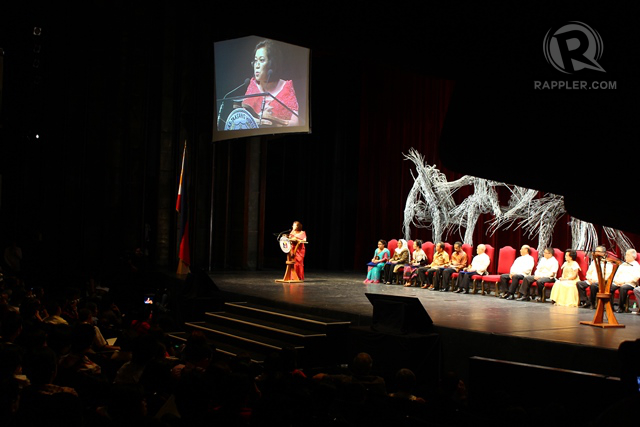
Embarrassed for public officials
Sereno congratulated the RMA Foundation’s Board of Trustees and staff, feeling a tinge of embarrassment.
“With all the embarrassment that I feel that some of us in the public service may not have been doing as much for the cause of the public good, please accept my warmest congratulations,” said the chief justice.
She challenged the public to be willing to wake up every day to serve others.
“[We should ask ourselves] why we have allowed the system to go rotten and inefficient, why we have stopped caring, why we have stopped doing what is best on a daily basis,” she said.
Responding to a “higher level of heroism” and to a “re-examination” of social values was the theme of Sereno’s talk.
“Perhaps this is a new era for us Filipinos. Perhaps we have been too comfortable. Or perhaps we were too afraid because of the complexity of the problems that is besetting us as a nation,” she observed.
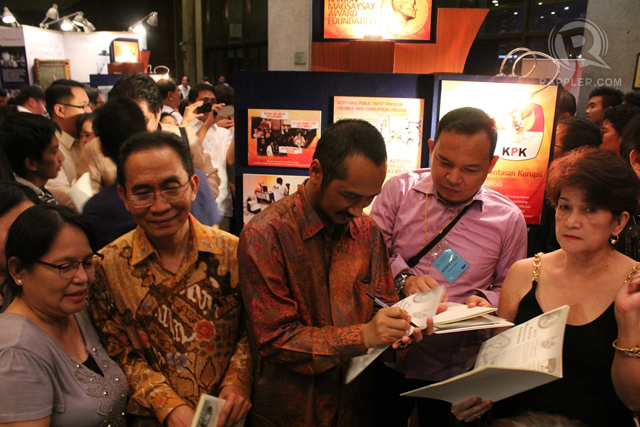
Indonesia’s KPK
The chief justice said very little about Indonesia’s Komisi Pemberantasan Korupsi (KPK), among the 2013 award recipients.
“I was afraid actually of saying something about your organization. Mr Chairman and Vice Chairman, you must understand that I am the chief justice who has to keep her mouth shut even when she wants to say something so passionately,” she said to the organization’s heads.
KPK (Corruption Eradication Commission) is an independent body in Indonesia formed through legislation that is mandated to investigate and prosecute erring and corrupt public leaders.
Sereno highlighted the group’s 100% conviction rate and its having sent “big fishes” to jail.
“We fight against corruption all the way… A signal to alert everybody: no mercy, no forgiveness, zero tolerance. Justice must prevail,” said KPK Commissioner Abraham Samad of their anti-corruption efforts.
KPK works in combating corruption in public service by carrying out audits, conducting searches and seizures, and even intercepting communication without a court warrant.
“Small numbers of people enrich themselves for their own selfish satisfaction, and leave the rest in poverty…This is injustice,” said KPK Deputy Commissioner Adnan Pandu Praja.
In the end, the chief justice thanked KPK: “Thank you for being there for us to admire.”
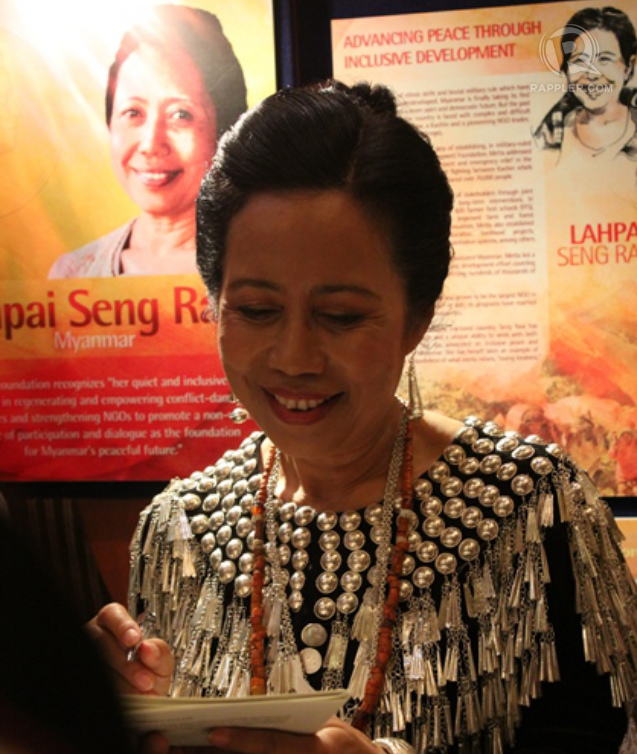
Collective recognition for NGOs
Two of the awardees are concerned with development work.
Shakti Samuha (Power Group) is an anti-human trafficking nongovernment organization (NGO) based in Nepal, while Lahpai Sang Raw is the founder of Myanmar’s Metta Development Foundation.
“I accept this award not as a personal honor but as a celebration of our collective achievement,” said Lahpai Sang Raw.
The two award recipients involved in NGO work brought great joy to their fellow develpment workers.
“The recognition and affirmation of one is an affirmation of the rest,” said Atty Claire Angeline Pauig Luczon of the Development Alternatives with Women for a New Era in an earlier interview.
She added that the awards given to Shakti Samuha and Lahpai Sang Raw are a timely reminder that what many NGO workers are doing — which is “being disparaged” following the siphoning of lawmakers’ funds by bogus NGOs — is still bearing fruit.
READ: Real NGOs struggle to get lawmakers’ PDAF
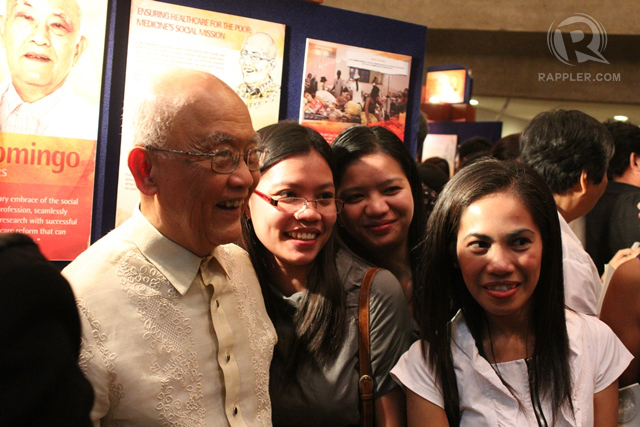
Healthcare and leadership
Dr Ernesto Domingo, the only Filipino awardee among the 2013 recipients, was a key player in the drafting of the country’s Universal Health Care program.
Domingo highlighted the need to bridge “relevance” and “excellence” together. He cited the lack of focus on the “social dimension” of the practice of medicine.
“Our strategy is to make available to advocacy the output of medical research, innovative — often radical — health profession education and training, and health system study. Our advocacy is focused on mitigating inequity in health,” he said upon the receipt of his award. – Rappler.com
Add a comment
How does this make you feel?
There are no comments yet. Add your comment to start the conversation.